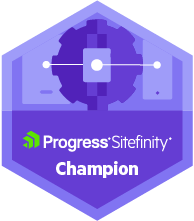DEREK BARKA
MEET DEREK
PARTNER, CHIEF TECHNOLOGY OFFICER
As Chief Technology Officer at SilverTech, Derek defines and drives the agency’s technology vision—helping clients harness data, digital platforms, and emerging technologies to solve complex business challenges and build meaningful, lasting customer relationships.
Known for finding solutions to the toughest and most complicated technology challenges, Derek combines innovation with deep expertise across enterprise architecture, cloud infrastructure, custom development, and big data. He brings a security-first mindset and a sharp focus on privacy and compliance, enabling organizations to build secure, scalable, and future-ready digital ecosystems.
Derek serves as a strategic adviser to both SilverTech’s technology partners and clients. He works closely with platform providers—often consulting on product roadmaps—to ensure solutions align with real-world business needs and deliver maximum value. He also helps client organizations develop and execute digital roadmaps that make the most of their existing systems and data, integrating legacy technologies with modern platforms where and when it makes sense to drive growth, stay competitive, and support long-term success.
Throughout his career, Derek has played a key role in shaping the tools and platforms that power modern digital marketing. He is a recognized authority and thought leader in the martech space—recently named a Kentico MVP and Progress Sitefinity Champion. Derek holds numerous certifications, including Kentico Developer, Kentico Marketer, Sitefinity Developer, and Sitecore Developer.


Exceptions to Web Content and Mobile App Accessibility Requirements for State and Local Governments
By: Paul Creme | 2/26/25
On April 24, 2024, the Federal Register published the Department of Justice’s final rules for Title II of the Americans with Disabilities Act as amended (the “ADA”). The rules are considered the technical standard for web content and mobile apps; Web Content Accessibility Guidelines (WCAG) Version 2.1, Level AA.
The rules ensure state and local government services, programs, and activities are available and accessible on websites and mobile apps for people with disabilities. As implementation clarity is non-negotiable, there are some exceptions that do not require web and mobile app content to comply with WCAG 2.1, Level AA.
THE EXCEPTIONS:
Archived Web Content
Information that may be rarely used or is outdated, not needed, or repeated somewhere else. The web content must meet all four of the following points to be considered an exception to the requirements:
- 1. The content was created prior to the effective date or reproduces paper documents or the contents of other physical media.
- 2. The content is kept only for reference, research, or recordkeeping.
- 3. The content is kept in a special area for archived content.
- 4. The content has not been changed since it was archived.
Preexisting Conventional Electronic Documents
Documents that meet both of the following points are not required to meet WCAG 2.1, Level AA:
- 1. The documents are word processing, presentation, PDF, or spreadsheet files.
- 2. They were available on the state or local government’s website or mobile app before the required date the state or local government must comply with this rule.
The exception does not apply if the documents are currently being used to apply for, access, or participate in a state or local government’s services and/or programs. Even if they were posted before the date the government must comply with the rule.
Contractual, Licensing, or Other Arrangements with a Public Entity
Content posted by a third party where said third party is not posting due to contractual, licensing, or other arrangements with a public entity. This may include such things as meeting notices by non-governmental entities.
Individualized Password-Protected Documents
Documents that meet all three of the following points do not need to meet WCAG 2.1, Level AA:
- 1. The documents are word processing, presentation, PDF, or spreadsheet files.
- 2. The documents are about a specific person, property, or account.
- 3. The documents are password-protected or otherwise secured.
This could include payment portals.
Preexisting Social Media Posts
If the state or local governmental entity is unable to meet the new requirements there are some alternatives such as having two versions of the same web and mobile app content. In other words, one version that is not accessible and another version that is accessible and provides all the same information and features. The second version is called a “conforming alternate version.” However, the entity may not have a main web page that is inaccessible and a separate accessible version of the same content, because people with disabilities should get equal access to that content on the same page.
Technicalities & Timing
In some limited situations, state and local governments may be able to show that their web content or mobile apps have minor attributes that do not meet WCAG Version 2.1, Level AA. In these cases, the issue would have to be so small that it would not interfere with the accessibility of the content or mobile app.
State and local governments cannot use this part of the rule to avoid compliance, and if web content does not fully meet WCAG 2.1, Level AA, there are many things the government would have to prove to show they are not in violation of the rule.
State and local governments must make sure their web content and mobile apps meet WCAG 2.1, Level AA within 2 - 3 years of when the rule was published (April 24, 2024), depending on their population. In other words, state and local entities have about 2 years to enforce fully compliant sites and mobile apps unless an exemption applies.
You can find more information about why the Department of Justice is enforcing these compliance requirements and their timelines here under “Requirements by Entity Size.” Please reach out if you have any questions regarding your website's compliance.
